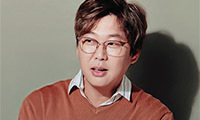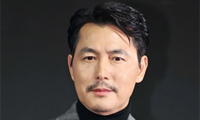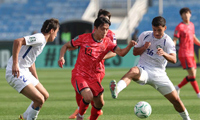A Step Toward Emotional Freedom
▶ Psychologically Speaking: Beatrice Sool Choi
"My mother is such a mean and demanding person." Nabi finally started to talk about her mother. "Everything has to be just the way she wants, even with her grandchildren. Otherwise, she will keep complaining about it until we all become so tense and tired that we have to give in."
Nabi is a well-groomed, polite, and bright young Korean American woman who was hospitalized after a serious argument with her brother. "I don’t remember what I did to end up in the hospital," Nabi said. "One problem that I knew at the time was that I had no one to talk to or listen to me."
Nabi was anxious, restless and well-guarded initially, but after a month of therapy, she began to talk about what troubled her. However, when she feels uncomfortable, she disrupts the flow of her storytelling, with "I don’t remember." At times, she appears momentarily dissociated or appears "spaced out."
"While I was growing up, I was often locked in my room, and sometimes I didn’t have dinner until late at night," said Nabi with tearful voice.
"What happened? Who locked you in?" I asked.
"Many times, my mother locked me in my room until I finished my piano practice. I was not allowed to go out after I came back from my school. She used to even hold my dinner until I completed the practice," Nabi answered.
Nabi described her mother as outspoken, dominant, and in her own words, a "prima donna". Her mother has a strong sense of superiority, and claimed that she deserved better treatment because of her beauty and intelligence.
"Once, my mother tied my hands to the door knob while she was out shopping. I was about six or seven years old," Nabi appeared indifferent as if she was telling someone else’s story.
"I still remember begging my brother to untie my hands," Nabi said. "He did it, but with a condition of ‘listening to him.’ That meant that if he told me to stop talking or anything, I had to stop it immediately or else he would beat me up. He was cruel to me; he physically abused me until I became 20 years old."
Nabi suffered from severe confusion, feeling resentment toward her aggressive mother and anger toward her abusive brother. It was a constant struggle for Nabi to survive her mother, a compulsive disciplinarian, who used psychological abuse as a means of maintaining control over her daughter. On the other hand, her brother was jealous of Nabi’s success in school, and used physical abuse as a means of maintaining power over her. Unfortunately, it seemed the environment in which Nabi lived was a fertile ground for her to lose her mind.
"When I played the piano well, my mother was very happy," Nabi said. "But now, she can hardly stand me. I have failed her. I am a loser." Nabi has never felt anything she has done was her own accomplishment, but a result of her mother’s effort and success. Nabi was indulged for her "mother’s glorification."
The effect of this abuse is devastating in Nabi’s present life, resulting in a lack of motivation, a lack of interests and goals, and feelings of suffocation. This child in Nabi’s young beautiful body has been craving for freedom for a long time.
In numerous traumatic experiences during her mother’s psychological abuse and her brother’s physical abuse, Nabi repressed her anger and aggression towards them. She said that "shutting her mouth and emotions off" was the only safe way to defend her vulnerable self from future harm and abuse.
As she grew older, Nabi ceased to employ this defense, and adapted a new way of defending herself. She daydreamed in delusional thoughts. This seems only logical for her as a means of controlling her brutal environment and escaping her painful reality. However, she feels guilty and shameful for having "craziness" and causing family disruption.
"Because I am considered ‘crazy,’ I can come to you to tell how crazy the rest of my family is," Nabi states whenever she feels less guilty. "You remember, Dr. Choi, that I don’t have anyone to talk about this stuff." So, she is encouraged to unload her "stuff" in the therapy room.
"Nabi, you are doing well. Go ahead, Nabi. Spit it out. DonÕt take it in any more. It is a toxin that will kill you," I whispered to myself.
It is sad to think about how many mothers out there pushing their children to achieve goals. But, whose goal is it?
I wonder how many children suffer from emotional imprisonment.
Dr. Beatrice Sool Choi is a clinical psychologist at the Richmond Area Multi Services (RAMS) in San Francisco. She can be reached at (415) 668-5955 ex. 39
or RAMS
3626 Balboa Street, San Francisco, CA 94121.
스마터리빙
more [ 건강]
[ 건강]이제 혈관 건강도 챙기자!
[현대해운]우리 눈에 보이지 않기 때문에 혈관 건강을 챙기는 것은 결코 쉽지 않은데요. 여러분은 혈관 건강을 유지하기 위해 어떤 노력을 하시나요?
 [ 건강]
[ 건강]내 몸이 건강해지는 과일궁합
 [ 라이프]
[ 라이프]벌레야 물럿거라! 천연 해충제 만들기
 [ 건강]
[ 건강]혈압 낮추는데 좋은 식품
[현대해운]혈관 건강은 주로 노화가 진행되면서 지켜야 할 문제라고 인식되어 왔습니다. 최근 생활 패턴과 식생활의 변화로 혈관의 노화 진행이 빨라지고
사람·사람들
more
[한인단체 신년 인터뷰] 시니어센터 이현옥 회장… “풍성하고 아름다운 노년의 공간”
활발한 프로그램 운영과 높은 커뮤니티 참여로 지역 내 대표적인 커뮤니티 기관으로 평가받는 LA 한인타운 시니어&커뮤니티 센터(이하 시니어센터)…

변진섭 ‘희망사항’ 콘서트
센터메디컬그룹이 2026년 새해를 맞아 회원과 가족, 시니어를 위한 문화체험 공연으로 가수 변진섭 콘서트를 오는 2월27일(금) 오후 8시부터…
코윈 LA지부 ‘2026 골프 토너먼트’
세계한민족여성네트워크(KOWIN) LA 지부(회장 김주희)는 오는 2월2일(월) 캘리포니아 웨스턴 힐스 컨트리클럽에서 ‘골프 토너먼트 2026…
남가주 한국학원 새학기 교사연수회
남가주한국학원(이사장 박성수·교육감 신춘상)은 지난 10일 본부 강당에서 2025-26학년도 2학기 교사연수회를 개최했다. 이날 연수회에는 남…
[한인단체 신년 인터뷰] KYCC 송정호 관장… …
LA 한인타운 대표 비영리단체 한인타운청소년회관(KYCC)의 송정호 관장은 “지금 우리가 하는 일은 커뮤니티 ‘니즈’가 있기 때문에 존재한다”…
많이 본 기사
- 트럼프 “美시민에 사기친 귀화 이민자, 국적 불문 시민권 박탈”
- 혼외자 논란→발연기 낙인→바이럴 의혹..정우성의 추락 [★FOCUS]
- 경찰, ‘비위 의혹’ 김병기 자택 등 6곳 압수수색…수사 본격화
- 영김 의원, 핵심광물공급망 강화 법안 발의… “中의존탈피”
- 트럼프 “시위대 교수형시 이란에 매우 강한 조치” 軍작전도 거론
- 트럼프, 이란거래국 25% 관세…미중 무역전쟁 재점화 불씨되나
- 상원서 가상자산 규제법안 발의…업계, 불확실성 해소 기대
- “인터넷 차단된 이란서 머스크 스타링크 무료로 제공”
- 방탄소년단, 드디어 베일 벗은 월드투어..4월 고양→6월 부산 간다
- 여학생 스포츠에 트랜스젠더 선수 참가 막히나…대법서 변론
- 텍사스서 한국 운전면허증 교환 발급 절차 간소화
- ‘내란 우두머리’ 尹에 사형 구형… … 3
- 트럼프 “금주 후반, 의료보험 부담 완화 프레임워크 발표”
- ‘민주당 잠룡’ 뉴섬 주지사 “캘리포니아 억만장자세 막을것”
- 조지아주 덜루스 시의회 ‘미주한인의 날’ 결의 채택
- 美, 엔비디아 H200 中수출 위한 규칙개정 완료… “中은 수입통제”
- 이스라엘, 미국 따라 유엔·국제기구 다수 탈퇴
- 한인 변호사가 ‘신탁자금 횡령’… 줄줄이 ‘중징계’
- 트럼프 “美시민에 사기친 귀화 이민자, 국적 불문 시민권 박탈”
- 2,000달러 ‘관세 배당’ 연소득 … 2
- 뉴욕증시, 트럼프·은행 갈등에 불확실성 촉발…약세 마감
- 머스크-오픈AI 소송, 4월 시작… “속아서 투자” vs “억지 주장”
- 국적이탈에 2년이나 걸린다고…
- 이란 사망 얼마나… “1만2천명 사망, 하메네이 발포령” 주장도
- 차관급 보내 설명했지만…美정계 “韓, 美기업차별·쿠팡 마녀사냥”
- 30년 평균 모기지 금리 5%대로 하락
- 멕시코, 베네수 기반 갱단원 체포…美와 정상통화 하루만
- 1만2천달러에 中에 기밀 판 대가…美… 1
- “독감 심각…마스크 착용 의무화”
- 골프 카트 전복… 50대 남성 사망
- 에어프레미아, 연중 최대 할인
- 박나래 또 의혹..집안일·산부인과 대리처방→약점 녹취 요구까지
- 그린란드 총리 “미국 일부 되느니 덴마크에 남겠다”
- 빌 클린턴, ‘엡스타인의혹’ 하원 소환에 “매카시즘”이라며 불응
- ‘낯설다’ 손흥민, 15년 만의 첫 ‘겨울 시즌’ 드디어 시작... ‘황제’ 메시와 맞대결도 ‘개봉박두’
- 트럼프, ICE총격 파장 미네소타에 “범죄자 있는곳에 살고싶나”
- 올해 IRS(연방 국세청) 세금보고 개막… 26일부터 접수 시작
- 한국, 2살 어린 우즈벡에 0-2 충격패... U23 아시안컵 8강 ‘극적’ 진출
- 뉴저지 저소득 아파트 신청 일원화 된다
- 무서운 ‘독감’… 한인 5세 아동 사망
- 카드 이자 10%로 제한 트럼프, 새 규제 추진
- 트렌턴, 멜로스, 시실리, 레욱트라 1
- 갑자기 쥐어짜는 듯한 복통·설사·혈변… ‘허혈성 대장염’
- [쿠쿠 아메리카] 조용한 혁신 담은 ‘스테인레스 내솥’ 무료 증정 이벤트
- ‘뉴욕시 무상 버스’ 올해는 물 건너간 듯
- 트럼프, 파월 겨냥해 “곧 물러나길 바란다…후임 수주내 발표”
- 트럼프, 이란과 대화 보류하며 反정부 시위대에 “기관 점령하라”
- ‘서부지법 난동 배후’ 혐의 전광훈 구속… “증거인멸·도망 염려”
- 뉴욕시 대형병원 간호사 노조 파업 돌입
- 민희진, 용산구 아파트 가압류?..오케이 측 “확인 후 대응할 것”
1/5지식톡

-
 한국 안경을 무료 배송으로 받아보실…
0
한국 안경을 무료 배송으로 받아보실…
0안녕하세요. 서울 안암동에 위치한 ‘보고싶다 안경원’입니다.저희는 다년간 한국 고객분들께 착용감 좋은 안경테와 한국안경브랜드,고압축 도수 렌즈를 합리적인 가격에 제공해온 안경 전문점입니다.이번에 해외 배송이 가능해…
-
 미 육군 사관학교 West Poin…
0
미 육군 사관학교 West Poin…
0https://youtu.be/SxD8cEhNV6Q연락처:wpkapca@gmail.comJohn Choi: 714-716-6414West Point 합격증을 받으셨나요?미 육군사관학교 West Point 학부모 모…
-
 ☝️해외에서도 가능한 한국어 선생님…
0
☝️해외에서도 가능한 한국어 선생님…
0이 영상 하나면 충분합니다!♥️상담신청문의♥️☝️ 문의 폭주로 '선착순 상담'만 진행합니다.☎️ : 02-6213-9094✨카카오톡ID : @GOODEDU77 (@골뱅이 꼭 붙여주셔야합니다…
-
 테슬라 자동차 시트커버 장착
0
테슬라 자동차 시트커버 장착
0테슬라 시트커버, 사놓고 아직 못 씌우셨죠?장착이 생각보다 쉽지 않습니다.20년 경력 전문가에게 맡기세요 — 깔끔하고 딱 맞게 장착해드립니다!장착비용:앞좌석: $40뒷좌석: $60앞·뒷좌석 …
-
 식당용 부탄가스
0
식당용 부탄가스
0식당용 부탄가스 홀세일 합니다 로스앤젤레스 다운타운 픽업 가능 안녕 하세요?강아지 & 고양이 모든 애완동물 / 반려동물 식품 & 모든 애완동물/반려동물 관련 제품들 전문적으로 홀세일/취급하는 회사 입니다 100% …
케이타운 1번가
오피니언
 노세희 부국장대우·사회부장
노세희 부국장대우·사회부장 먼로 독트린과 돈로 독트린
 민경훈 논설위원
민경훈 논설위원트렌턴, 멜로스, 시실리, 레욱트라
 한형석 사회부 부장대우
한형석 사회부 부장대우 LA 시장 선거 구도와 선택지
 정유환 수필가
정유환 수필가 [화요칼럼] 어머님 전(前) 상서
 이왕구 / 한국일보 논설위원
이왕구 / 한국일보 논설위원[지평선] 다시 듣는 김광석
 박기섭
박기섭 ‘눈의 詩經’
 옥세철 논설위원
옥세철 논설위원‘좀비(zombie)체제’가 무너질 때…

돈로 독트린
 조지 F·윌 워싱턴포스트 칼럼니스트
조지 F·윌 워싱턴포스트 칼럼니스트 [조지 F. 윌 칼럼] 트럼프의 무면허 괴물 사냥
1/3지사별 뉴스

뉴욕시 대형병원 간호사 노조 파업 돌입
뉴욕시 대형병원 간호사 노조가 12일 전면 파업에 돌입했다. 임금인상, 인력 충원, 처우개선, 간호사 안전강화 등의 개편 요구가 받아들여지지 …
‘뉴욕시 무상 버스’ 올해는 물 건너간 듯

국적이탈에 2년이나 걸린다고…
선천적 복수국적자가 한국국적을 포기하고 미국 국적만 선택하는 ‘국적이탈’ 절차에 통상 2년이나 소요되는 것으로 확인됐다. 본보 기자가 지난 1…
“독감 심각…마스크 착용 의무화”

트럼프 “美시민에 사기친 귀화 이민자, 국적 불문 시민권 박탈”
도널드 트럼프 대통령은 13일 “소말리아든 어디 출신이든, 귀화 이민자 중 우리 시민들을 상대로 사기를 쳐 유죄 판결을 받으면 시민권을 박탈할…
살림으로 뿌리내리다- 테이크루트 안미정 대표의 요리 이야기 (9)



















































.png)


댓글 안에 당신의 성숙함도 담아 주세요.
'오늘의 한마디'는 기사에 대하여 자신의 생각을 말하고 남의 생각을 들으며 서로 다양한 의견을 나누는 공간입니다. 그러나 간혹 불건전한 내용을 올리시는 분들이 계셔서 건전한 인터넷문화 정착을 위해 아래와 같은 운영원칙을 적용합니다.
자체 모니터링을 통해 아래에 해당하는 내용이 포함된 댓글이 발견되면 예고없이 삭제 조치를 하겠습니다.
불건전한 댓글을 올리거나, 이름에 비속어 및 상대방의 불쾌감을 주는 단어를 사용, 유명인 또는 특정 일반인을 사칭하는 경우 이용에 대한 차단 제재를 받을 수 있습니다. 차단될 경우, 일주일간 댓글을 달수 없게 됩니다.
명예훼손, 개인정보 유출, 욕설 등 법률에 위반되는 댓글은 관계 법령에 의거 민형사상 처벌을 받을 수 있으니 이용에 주의를 부탁드립니다.
Close
x